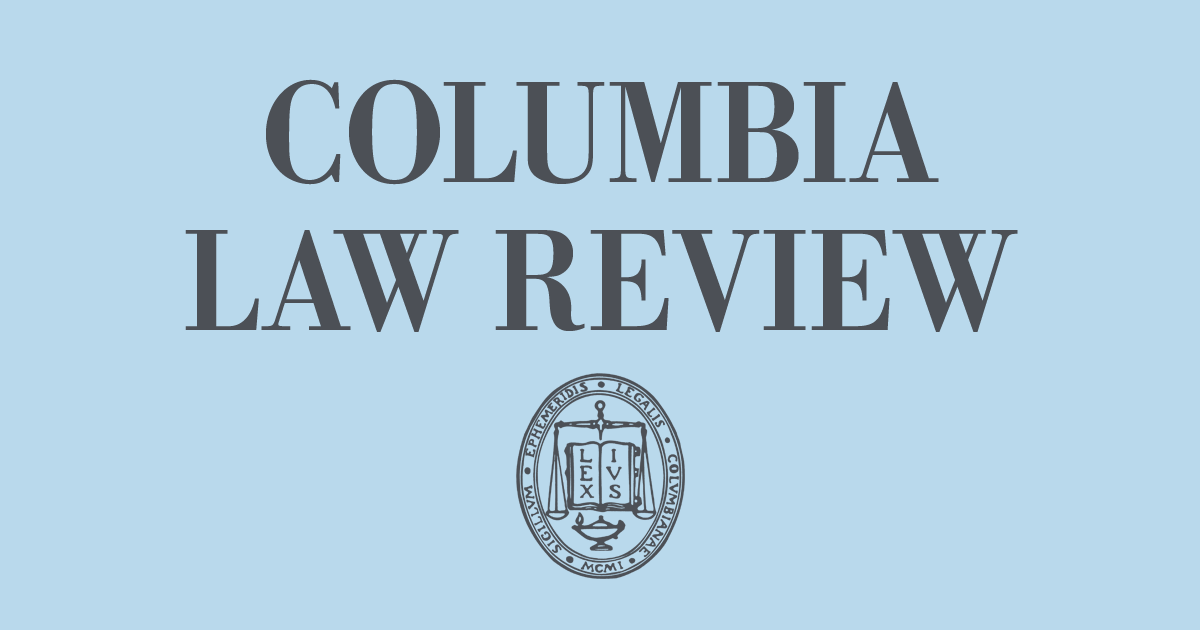- Joined
- Mar 20, 2019
- Messages
- 438
QUALIFIED IMMUNITY FORMALISM: “CLEARLY ESTABLISHED LAW” AND THE RIGHT TO RECORD POLICE ACTIVITY
The Supreme Court’s qualified immunity jurisprudence provides little guidance on a central component of the doctrine: the proper sources of “clearly established law.” As a result, lower courts often resort to a restrictive definition of clearly established law, requiring a controlling precedent in the jurisdiction where the violation took place. This formalist approach unmoors qualified immunity from its intended purpose: ensuring that public officials are subject to liability only when they have fair warning about the legality of their conduct.
As applied to the First Amendment right to record police, qualified immunity formalism has produced an artificial circuit split. While the Supreme Court has yet to rule on the issue, each of the six federal appellate courts to address the constitutional question has concluded that the First Amendment protects the right of citizens to document the police. In the other circuits, which have remained silent on the matter, trial courts maintain that the right is not clearly established, thereby immunizing law enforcement defendants from liability. Despite the near-nationwide agreement that citizen recording merits constitutional protection, courts generally refuse to consider out-of-circuit decisions in their qualified immunity analyses.
This Note critiques qualified immunity doctrine in the context of the First Amendment right to record public police activity, arguing that the formalist approach deviates from the policy considerations undergirding qualified immunity and impedes the development of First Amendment jurisprudence. It proposes a more functional approach to qualified immunity in which a “robust consensus of persuasive authority” suffices to establish federal rights.

 columbialawreview.org
columbialawreview.org
The Supreme Court’s qualified immunity jurisprudence provides little guidance on a central component of the doctrine: the proper sources of “clearly established law.” As a result, lower courts often resort to a restrictive definition of clearly established law, requiring a controlling precedent in the jurisdiction where the violation took place. This formalist approach unmoors qualified immunity from its intended purpose: ensuring that public officials are subject to liability only when they have fair warning about the legality of their conduct.
As applied to the First Amendment right to record police, qualified immunity formalism has produced an artificial circuit split. While the Supreme Court has yet to rule on the issue, each of the six federal appellate courts to address the constitutional question has concluded that the First Amendment protects the right of citizens to document the police. In the other circuits, which have remained silent on the matter, trial courts maintain that the right is not clearly established, thereby immunizing law enforcement defendants from liability. Despite the near-nationwide agreement that citizen recording merits constitutional protection, courts generally refuse to consider out-of-circuit decisions in their qualified immunity analyses.
This Note critiques qualified immunity doctrine in the context of the First Amendment right to record public police activity, arguing that the formalist approach deviates from the policy considerations undergirding qualified immunity and impedes the development of First Amendment jurisprudence. It proposes a more functional approach to qualified immunity in which a “robust consensus of persuasive authority” suffices to establish federal rights.

QUALIFIED IMMUNITY FORMALISM: “CLEARLY ESTABLISHED LAW” AND THE RIGHT TO RECORD POLICE ACTIVITY - Columbia Law Review
Introduction In July 2017, the Third Circuit Court of Appeals held that a police officer violated Amanda Geraci’s First Amendment rights by pinning her against a pillar to prevent her from recording the arrest of an antifracking protestor outside the Philadelphia Convention Center. That conduct...
Attachments
-
261.6 KB Views: 0
